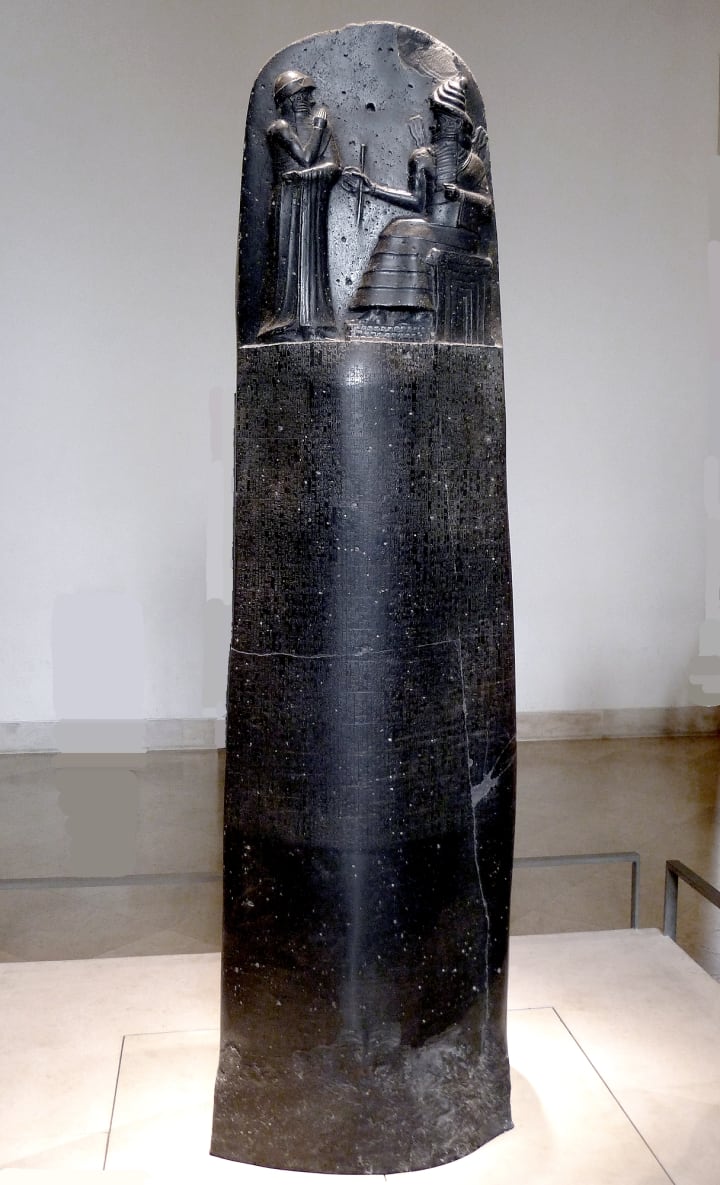The First Babylonian Dynasty
A Legacy of Power and Law in Ancient Mesopotamia

The First Babylonian Dynasty
Emerging from the ashes of the Akkadian Empire, the First Babylonian Dynasty (1894-1595 BCE) carved its name into the annals of history as a period of remarkable political prowess, cultural flourishing, and groundbreaking legal developments. Led by the Amorites, a nomadic people from the Arabian Peninsula, this dynasty transformed a regional city-state into a dominant empire, leaving behind a rich legacy that continues to resonate today.
Amorite Roots and Rise to Power
The Amorites, known for their adept use of chariots and skilled horsemanship, migrated into Mesopotamia during the decline of the Akkadian Empire. Initially settling in various city-states, they gradually rose to prominence through their military prowess and political acumen. The first king of the dynasty, Sumu-la-El, established Babylon as the center of his burgeoning kingdom, laying the foundation for future expansion.
Hammurabi: Architect of an Empire
Hammurabi, perhaps the most celebrated figure of the dynasty, ascended the throne in 1792 BCE. A cunning strategist and ambitious leader, he embarked on a series of conquests that solidified Babylonian dominance throughout Mesopotamia. From the fertile plains of Assyria to the rich trading centers of the south, Hammurabi's empire stretched far and wide, uniting diverse regions under a single banner.
The Code of Hammurabi: A Beacon of Justice
Beyond territorial expansion, Hammurabi's legacy is intricately tied to the groundbreaking Code of Hammurabi, one of the earliest and most comprehensive legal codes in history. Carved onto a towering black stele, the code meticulously outlined a system of laws governing various aspects of Babylonian life, from social interactions to economic transactions, and even criminal punishments.

The code, remarkable for its emphasis on proportionality and fairness, aimed to establish a sense of order and justice within the burgeoning empire. It served as a model for legal systems in subsequent civilizations, including the ancient Greeks and Romans, and its influence continues to be felt in modern legal frameworks.
Cultural Flourishing and Enduring Influence
hile military might and legal prowess defined the dynasty's external image, a vibrant cultural tapestry flourished within its boundaries. Skilled artisans crafted exquisite jewelry and intricate sculptures, adorning temples and palaces with breathtaking beauty. Literary works thrived, with epic poems capturing the deeds of legendary heroes and tales of gods and goddesses. This cultural renaissance solidified Babylon's position as a major center of learning and artistic expression in the ancient world.
The First Babylonian Dynasty's influence stretched far beyond its temporal reign. The Amorites' political acumen laid the groundwork for future Mesopotamian empires, while Hammurabi's legal code set a precedent for justice and order that echoed throughout history. Their cultural achievements, from art and literature to architecture and science, continue to inspire and inform our understanding of this pivotal period in human history.
The Fall of the Dynasty and a Lasting Legacy
Despite its remarkable achievements, the First Babylonian Dynasty eventually succumbed to internal strife and external pressures. In 1595 BCE, the Hittites, a powerful Anatolian kingdom, sacked Babylon, bringing an end to the dynasty's reign. Yet, the legacy of the Amorites and their dynasty endured. The city of Babylon remained a potent symbol of Mesopotamian culture, while the Code of Hammurabi continued to influence legal systems for centuries to come.
Though their reign may have been short-lived, the First Babylonian Dynasty's impact on the ancient world remains undeniable. They brought Mesopotamia under a single banner, established a system of law that championed justice, and fostered a vibrant cultural scene that continues to captivate our imaginations. The Amorites left behind a legacy of power, innovation, and cultural brilliance, etching their names forever in the annals of history.
In conclusion, the First Babylonian Dynasty was more than just a fleeting chapter in Mesopotamian history. It was a period of monumental change, shaping the political landscape, legal framework, and cultural tapestry of the region. From the conquests of Hammurabi to the enduring influence of the Code of Hammurabi, the Amorites left behind a legacy that continues to inspire and inform our understanding of the ancient world.
About the Creator
Hmid Abderrahmane
Abderrahman hmid, 23, a skilled content writer with translation expertise. Experienced in journalistic translation across fields. Owns a collection of unpublished fiction and creative stories awaiting an online debut. Thanks!






Comments
There are no comments for this story
Be the first to respond and start the conversation.